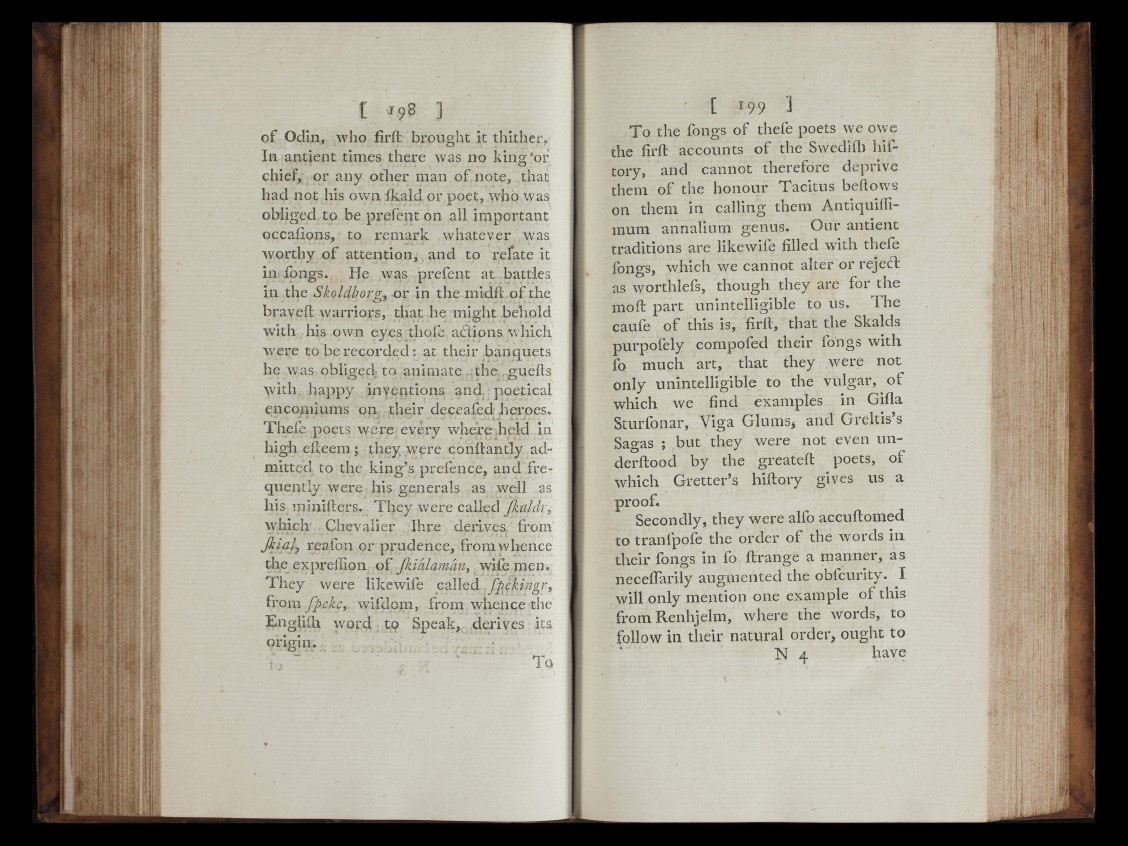
■ f t ;
X
I-ft
( '
o f Odin, who firil brought it thitheift
In antient times there was no k in g ‘or
chief, or any other man o f note, that
had not his own ikald or poet, who was
obliged to be preient on all important
occafions, to remark whatever was
worthy o f attention, and to relate it
in fongs. He was prefent at battles
in the Skoldhoi'g, or in the mldil of the
braveit warriors, that he might behold
with his own eyes thole aclions which
were to be recorded; at their banquets
he was obliged, to animate the gueils
with happy inventions aiid^ poetical
encomiums on their deceafed heroes,
Thefe poets were every where held in
high efteem ; they were conftantly admitted
to the king’s prefence, and frequently
were his generals as well as
his minifters. They were called Jkaldr,
which Chevalier Ihre derives from
Jkial^ reafon or prudence, from whence
the expreffion o f fkialaman, wife men.
They were likewife called fpekingry
from fpekc, wifdom, from whence the
Engliih word to Speak, derives its
origin.
To
To the fongs of thefe poets we owe
the firft accounts o f the Swedifli hiftory,
and cannot therefore deprive
them o f the honour Tacitus beftows
on them in calling them Antlquiifi-
inum annaliurn genus. Our antient
traditions are likewife filled with thefe
fongs, which we cannot alter or rejeil
as worthlefs, though they are for the
moil part unintelligible to us. The
caufe o f this is, firil, that the Skalds
purpofely compofed their fongs with
fo much art, that they v/ere not
only unintelligible to the vulgar, o f
which we find examples In Giila
Sturfonar, Viga Glums, and Greltis’s
Sagas ; but they were not even un-
derftood by the greateft poets, of
which Gretter’s hiftory gives us a
proof.
Secondly, they were alfo accuftomed
to tranfpofe the order o f the Avords in
their fongs in fo ftrange a manner, as
neceflarily augmented the obfcurity. I
will only mention one example o f this
from Renhjelm, where the words, to
follow in their natural order, ought to
N 4 have
I i
I I